Walking the fields is an experience many growers and shippers have to survey what’s going on with crops at the moment. Brody Irvine, purchaser at Discovery Organics, shares his experience in his walk this week through fields in California’s desert region and Arizona, where he surveys crops such as broccoli/cauliflower, celery, lettuces and bunching greens such as baby bok choy, chards, kales and more. Here’s what he sees going on with organic growing there at the moment.
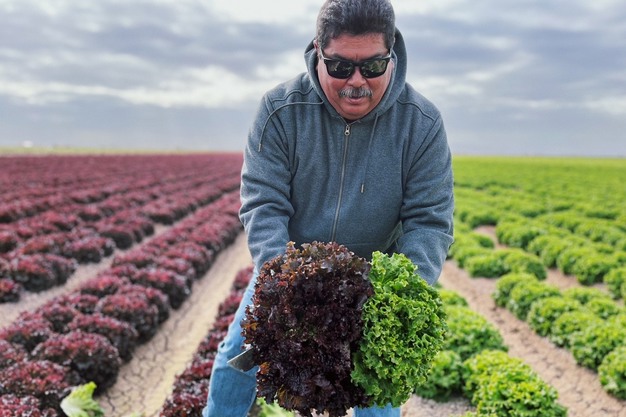 Raul Garnica of Braga Fresh shows off some product from the field.
Raul Garnica of Braga Fresh shows off some product from the field.
“It was chilly. It had gotten pretty cold,” says Irvine. “Primarily that had slowed things down. I thought it would be more impactful but it wasn’t too bad.” What those colder temperatures did do though was put growers on watch for the temperatures to hit freezing and the subsequent frost that comes with that.
That includes watching for lettuce ice, particularly on iceberg lettuce. “Mostly it was causing a delay in harvest where they would wait for everything to thaw out before they could get in there and get product,” he says. “There was blister and epidermal peel but they do a bit more of a peel back with that. With romaine, they might pack more romaine hearts and with iceberg they’ll peel it back in the field as best they can.”
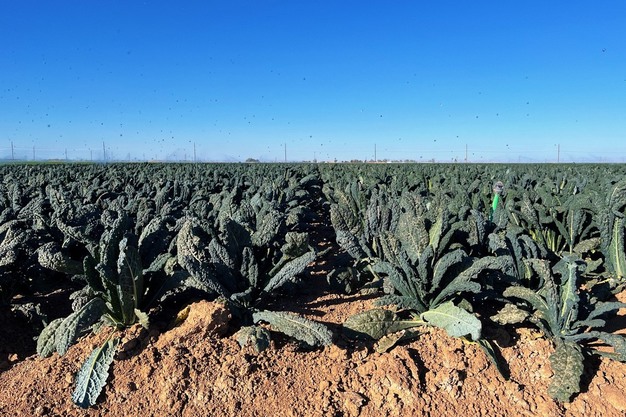 Getting a closer look at Capay Organic.
Getting a closer look at Capay Organic.
Windy conditions
That said, he notes the temperatures didn’t go as low as originally forecast so that minimized quality issues. However, there was quite a bit of wind. “I’m interested in how that might affect tip burn and other issues with leaf lettuces,” said Irvine. “Though it can also help keep a lot of the moisture off so it won’t freeze as much.”
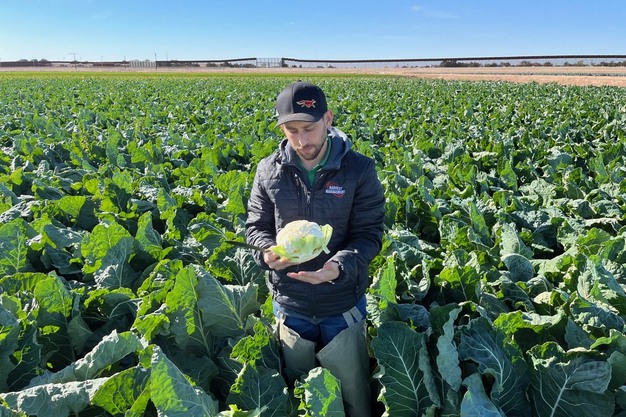 Carter Rodriguez of Foxy Organic.
Carter Rodriguez of Foxy Organic.
As for this year’s transition to the Arizona growing region, growers are reporting it was a smooth one. “Particularly for lettuce and especially after all the lettuce issues last year,” Irvine says. “That’s a relief there.”
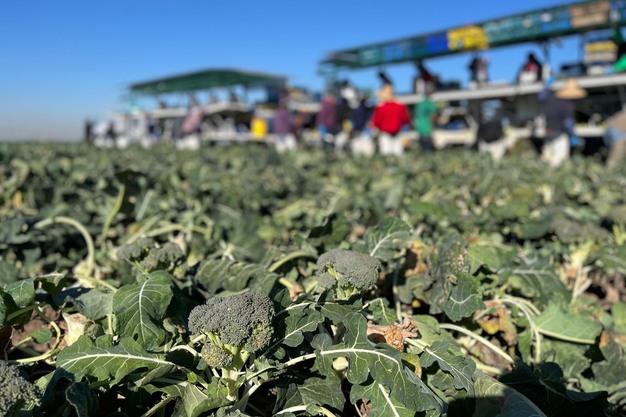 Field workers in a Mainas Farms, LLC field.
Field workers in a Mainas Farms, LLC field.
However, he also adds that some growers believe there might also be less organic acreage going forward. “Almost all the field managers mentioned that there was a feeling that some people were transitioning out of organic land and it’s mostly about the financials,” he says. “The break-even costs of what it takes to pack and ship a box of produce is going up and the sales market is not meeting that.” Inputs for organic growing also tend to be higher over conventional inputs and the yields might not also be as high. “One grower said that it was just not as much fun to farm as it used to be,” Irvine adds.
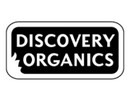 For more information:
For more information:
Stefan Misse
Discovery Organics
Tel: +1 (604) 299-1683
[email protected]
www.discoveryorganics.ca










